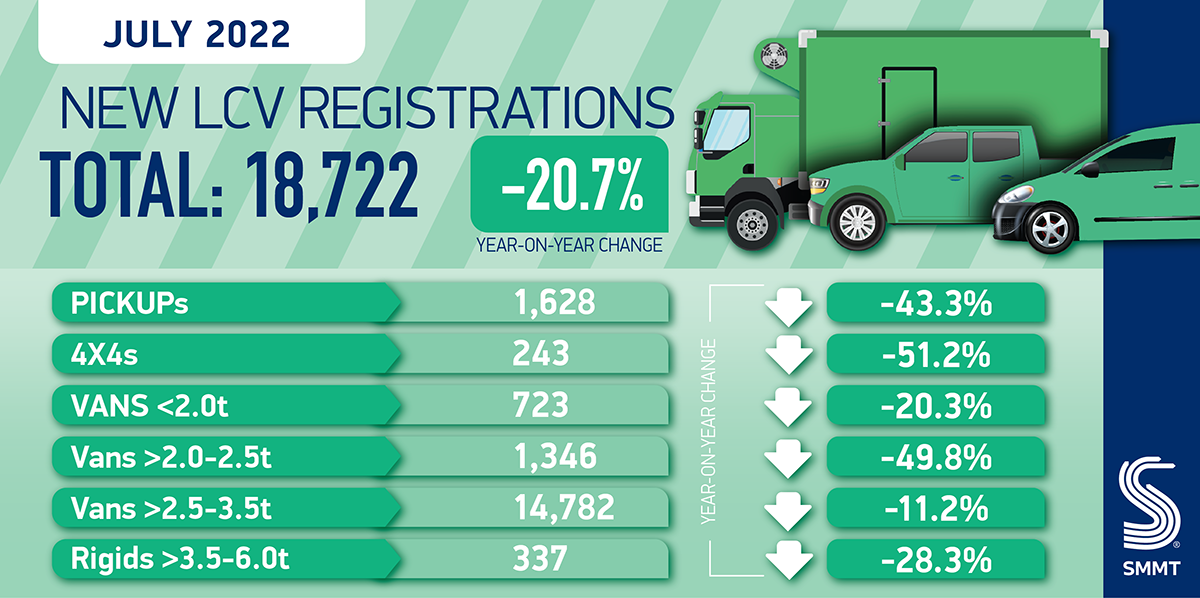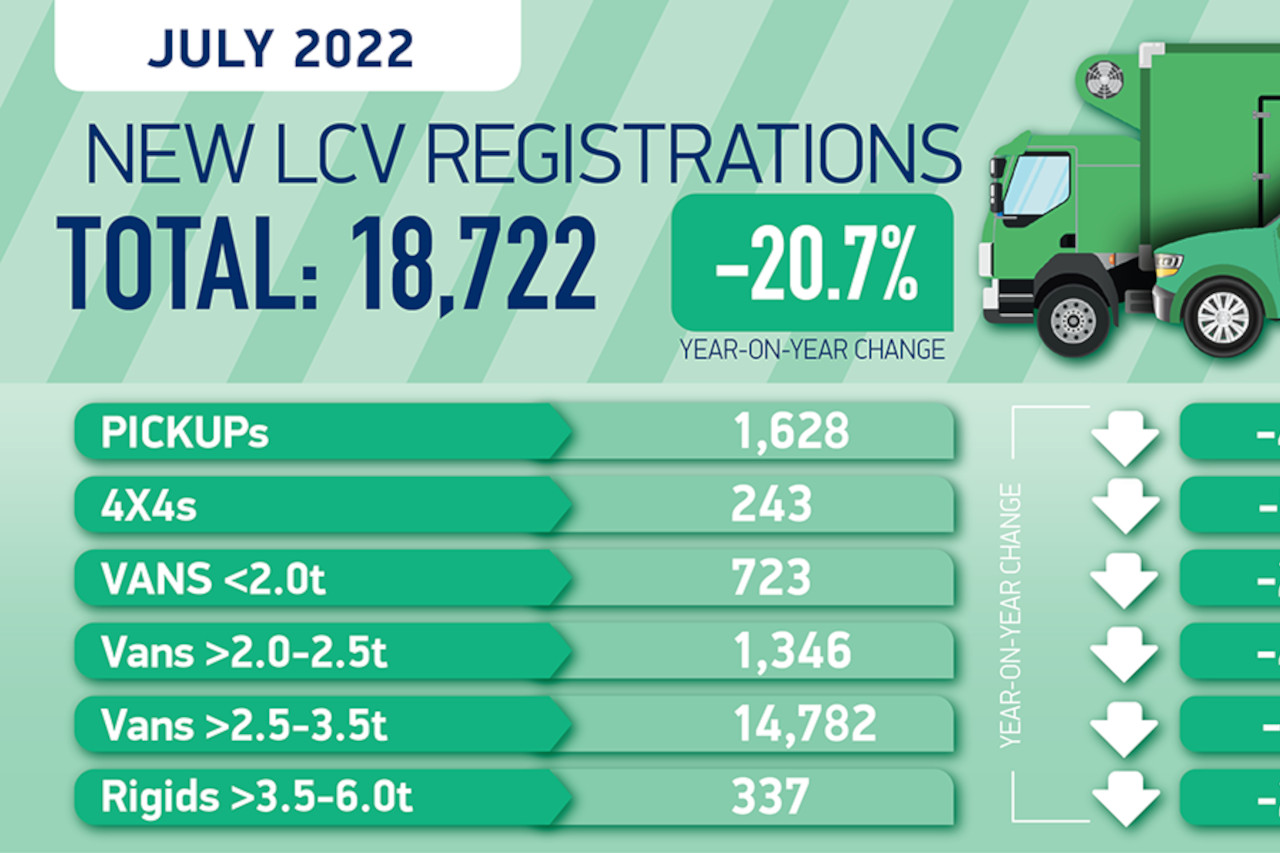UK registrations of light commercial vehicles are down for the seventh month in a row, when looking at year-on-year numbers. Only 18,722 new units were registered, marking a 20.7% fall compared to this time last year.
According to the latest figures published by the Society of Motor Manufacturers and Traders (SMMT), the decline is the result of ongoing global supply shortages caused by the Covid-19 pandemic.
When compared with the pre-pandemic five-year average, July 2022 is down 23.9%.
All LCV segments saw a drop in registrations, with pickups (-43%) and vans between 2t and 2.5t (-50%) with the largest fall in numbers.
One small positive is that the registration of battery electric vans (BEVs) has increased, with BEV registrations up 21.2% over 2021. BEV market share is at 4.1%, up from 2.7% the previous year. This is a solid improvement, but still only represents one in 18 vans being battery electric.
The current market has a wealth of BEVs available, with one in three models now available with a plug, so hopefully the uptake of electric vans will continue to increase.
Industry projections have been adjusted due to this seventh month of weak performance. Expectations now are for 307,000 new registrations for 2022, down from 328,000 which was projected in April.

The good news is that semiconductor shortages are expected to ease somewhat in 2023, which should lead to improved production and, in turn, a stronger year for new vehicle registrations.
Mike Hawes, SMMT Chief Executive, said, “The LCV market is struggling to recover post-Covid as global supply chain shortages and economic headwinds make the business environment even more challenging for both manufacturers and operators. In these circumstances, the continued growth in electric van uptake is admirable as the industry strives to deliver its Net Zero commitments. Given the importance of the commercial vehicle sector to Britain’s economy, its environmental ambitions and the need to keep society on the move, the next Prime Minister must look to restore economic confidence and support the sector’s transition to zero emission mobility.”
As the issues around shortages start to resolve in 2023, and the market recovers, we expect manufacturers to lean even more into the production of electric vans. From a business perspective, it might be time to start planning ahead and looking to make the switch to an electric van lease in the coming years.
The SMMT have identified the lack of charging infrastructure as a critical obstacle to the government’s carbon zero targets, as dedicated electric vehicle charge points for LCVs are not common. While this is expected to improve in the coming years, it is something to keep in mind when looking to make the switch to electric.

